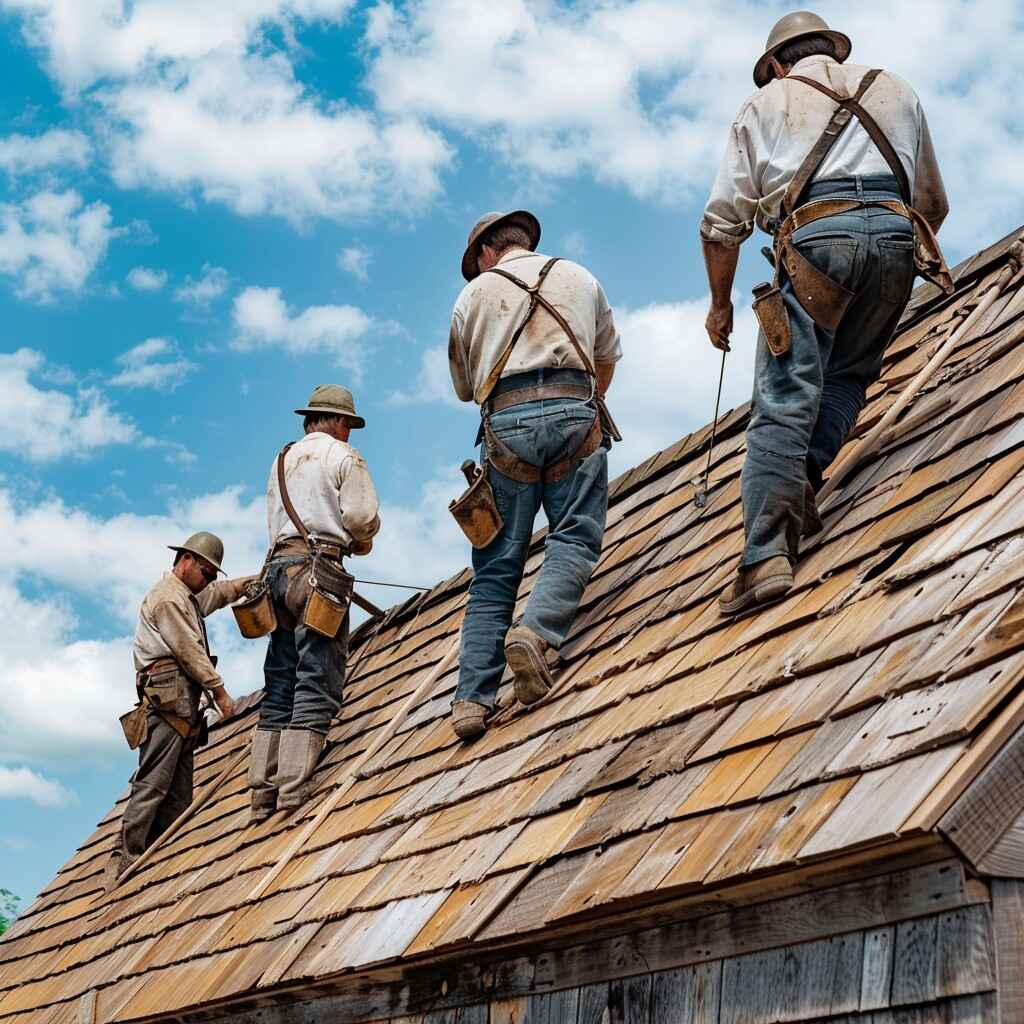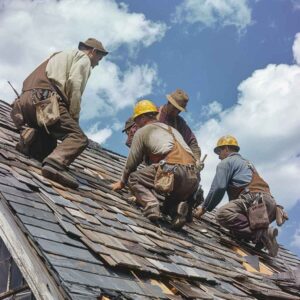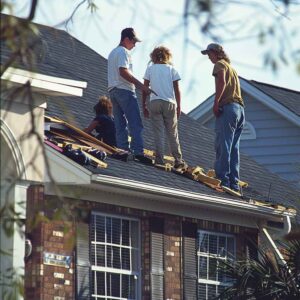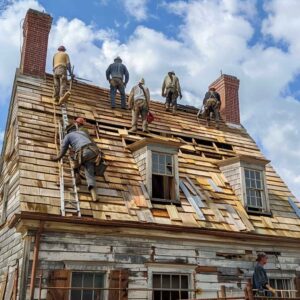Understanding the difference between roof repair and replacement is crucial for making the right choice. Fixing a roof deals with issues like absent shingles or leaks, prolonging its lifespan, and preserving aesthetics. Conversely, replacement is essential when damage is widespread, the roof is aged, or recurring issues persist. Evaluating factors such as cost, the extent of damage, and future property plans aid in deciding between the two alternatives. Thoughtfully balancing repairs’ immediate cost-effectiveness against replacement’s enduring advantages is paramount. Making a knowledgeable decision by consulting a roofing specialist guarantees the longevity and effectiveness of your property’s roof.
Signs of Roof Damage
Examining your roof for signs of damage is essential in determining whether repair or replacement is necessary. One standard indicator of roof damage is missing or damaged shingles. Shingles that are cracked, curling, or buckling may also suggest fundamental issues. Another sign to look out for is water stains on your ceiling or walls, which could indicate a leaky roof. If you notice excessive granules from the shingles in your gutters, it may be a sign of advanced wear and potential roof failure. Moreover, inspect the roof valleys for any signs of deterioration, as this is a common area where leaks occur.
Regularly checking your roof for these signs of damage can help you address issues promptly, potentially saving you from more extensive and costly repairs. By being proactive and attentive to these warning signs, you can ensure your roof remains in good condition and prolong its lifespan.
Benefits of Roof Repair
Evaluating the benefits of roof repair involves addressing immediate issues and ensuring the long-term structural integrity and functionality of your roof. One of the primary advantages of opting for roof repair is cost-effectiveness. Repairing minor damages promptly can prevent them from escalating into major issues requiring a complete roof replacement, saving you significant money in the long run. Moreover, roof repair helps maintain the aesthetics of your property by fixing visible problems such as leaks, missing shingles, or water stains.
Furthermore, timely repairs can enhance your home’s energy efficiency by sealing any gaps or leaks that could result in heat loss during colder months or air conditioning escaping in the summer. This not only improves comfort levels but also reduces energy costs. Roof repair also contributes to your property’s overall safety by ensuring that your roof can withstand harsh weather conditions and protect your home effectively. By addressing issues promptly, you prolong the lifespan of your roof and avoid the need for premature replacement.
Factors Influencing Replacement
When determining the need for roof replacement, several key factors come into play, influencing the decision-making process significantly. The age of the roof is a primary consideration. Most roofs have a 20-25-year lifespan, so replacement may be necessary if your roof is approaching this age or older. The extent of damage is another pivotal factor. If the roof has extensive damage from storms, leaks, or wear and tear that cannot be effectively repaired, replacement is likely the best option to guarantee the structural integrity of the building.
Moreover, if you are experiencing frequent and recurring issues despite numerous repair attempts, opting for replacement may be more cost-effective in the long run. The type of roofing material is also essential, as some materials have longer lifespans than others. Lastly, considering plans for the property and whether a new roof would increase its value or curb appeal should also impact the decision-making process.
Cost Comparison: Repair Vs. Replacement
In evaluating the financial impact of roof maintenance, a critical aspect to ponder is the cost comparison between repair and replacement. Roof repairs are generally more cost-effective in the short term than a complete roof replacement. The costs of repairs typically involve fixing specific issues, such as leaks, damaged shingles, or flashing, which can be localized and targeted. On the other hand, roof replacement entails installing an entirely new roof, which can be a substantial investment due to the materials, labor, and time.
When considering costs, it is essential to weigh the immediate expenses of repairs against the potential long-term savings of a replacement. While repairs may seem cheaper upfront, frequent maintenance can add up over time, making a replacement a more economical choice in the long run. Moreover, a new roof can increase energy efficiency, reducing utility costs.
Ultimately, the decision between repair and replacement should be based on factors like the roof’s age, extent of damage, and long-term financial considerations. It is advisable to consult with a professional roofing contractor to assess the best course of action based on individual circumstances.
Other Roofing Tips:





